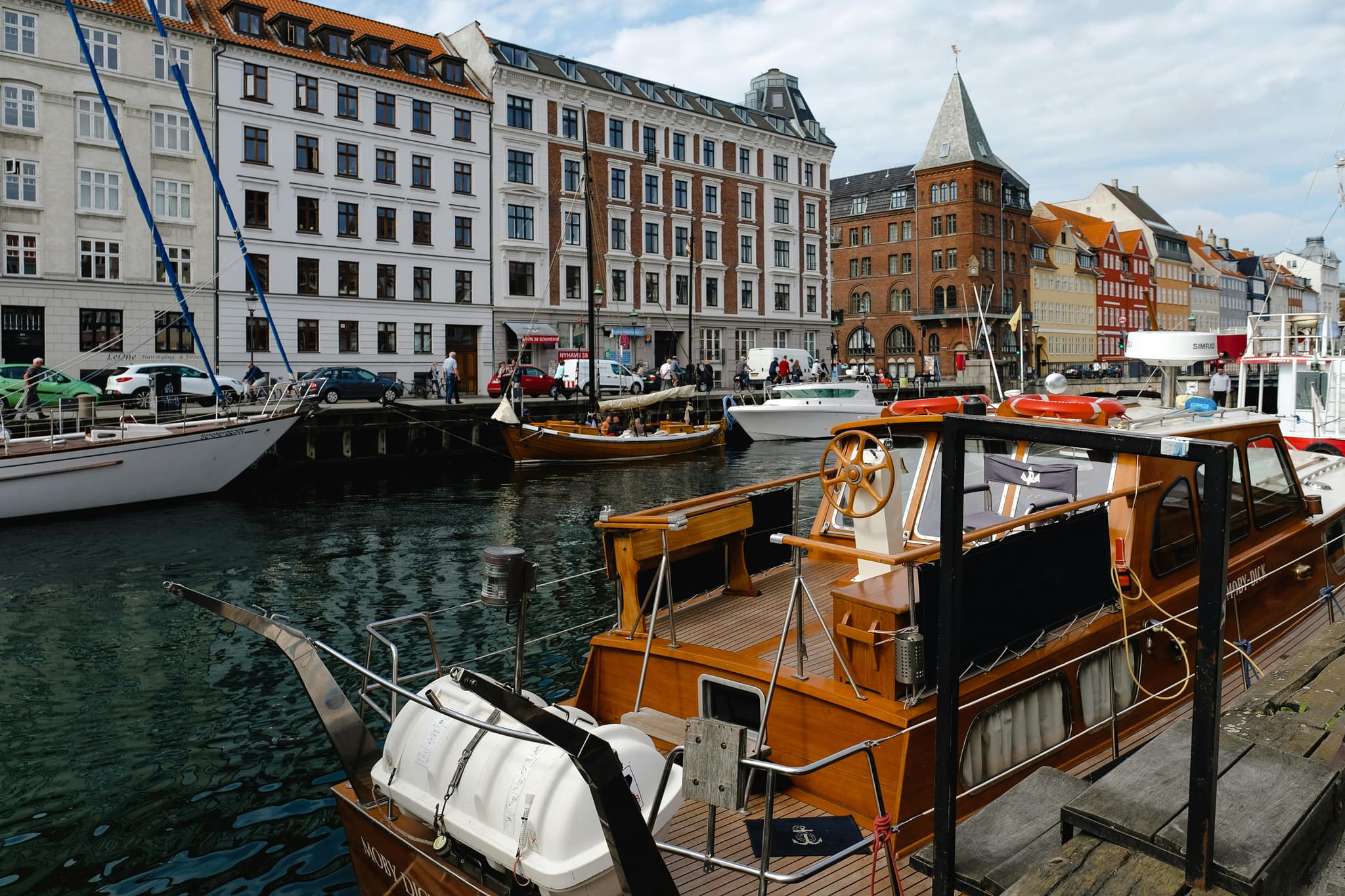
Global Workforce Management
Comparing Employer of Record Against Common Law Employer (Updated in 2026)
Discover the key differences between an Employer of Record and a Common Law Employer to make informed decisions for your business.
Lucas Botzen
International Employment Laws
8 mins read



Our Employer of Record (EOR) solution makes it easy to hire, pay, and manage global employees.
Book a demoDenmark is one of the most coveted countries for anyone looking for a better work-life balance. Its workweek rules and regulations make this balance a priority.
Denmark is also named one of the world’s most digitally advanced countries and is considered one of the top innovators in the European Union. Plus, it is also one of the greenest countries in the EU.
Those looking to move to Denmark to pursue better work opportunities are often curious about Denmark’s workweek rules and regulations. Let’s cover what makes Denmark’s work week unique and tempting for foreign workers.
Denmark doesn’t have specific provisions for mandatory workweek hours or minimum wages. These are both set in regular negotiations between employee and employer unions, also known as collective bargaining agreements (CBA).
However, most employees enjoy 37.5 hours long work weeks. These include 7.5 hours a day for five days a week, with half an hour lunch break which may or may not be covered by the salary.
A typical day in the office begins at 8 am and finishes at 4 pm. This is why you’ll often hear that offices close at five in Denmark. However, some blue-collar and construction workers will often finish even earlier, as their workday typically starts at 6 or 7 am.
Many people say that the shorter working hours are unpaid lunch breaks. This is true, to an extent, as Danish workers get half an hour each day for lunch.
However, whether the lunch breaks are paid or not, depends on the sector you work in and your employer. For most public sector employees lunch break is always paid by the employer. It is written in the collective agreement.
Whether your lunch breaks are paid as a private sector employee depends on the contract you have and the collective agreement in the industry. By default the lunch break is not covered by the employer, but the collective agreement or your contract may stipulate it.
There are no set rules that govern overtime work in Denmark, and your employer will follow the guidelines set in the collective agreement if there is one. Unless you state otherwise in your contract, you have to agree to work overtime with very little notice if your employer requires it.
The compensation for the overtime also depends on the collective agreement. Generally, the overtime pay is 50% for the first three hours and then 100% for additional hours. The employees have the right to choose whether they would like to be paid for the overtime, or exchange it for time off.
Public sector employees may be asked to work overtime if the employer deems it necessary, and this includes weekends and evenings. It is also provisioned that overtime work exceeds four weeks or more. If the overtime work stretches over a shorter period, public sector employees may not be eligible for overtime compensation.
Some employees in generalist positions must work overtime, and this is unpaid. These include chief consultants and special consultants.
Every workweek in Denmark that is less than 37 hours per week is considered part-time work. Under the Danish Salaried Employees Act, you must be employed for more than 8 hours per week to be eligible.
The salary for part-time work is usually calculated based on the number of hours worked. Other benefits are still included, and you can enjoy the same number of holiday days as the full-time employee. Both are eligible for 25 days of paid holiday.
Denmark’s law prohibits employees from being discriminated against based on the hours worked. You cannot be treated less favorably than your full-time colleagues just because you are not working full-time. You may also choose to work part-time or refuse part-time work.
Denmark also has jobs that are fixed salaries. These do not have a specified number of maximum hours you can work per week. Workers on fixed salaries are not entitled to overtime pay, similar to the non-exempt workers in the US.
However, even for fixed-salary employees, an average working week should not exceed 48 hours. Employees are entitled to rest hours of at least 11 hours for every 24 hours. They are also entitled to at least one day of rest per week. The employee cannot work for more than six days without a day off.
Night workers also have mandatory break time. They are not allowed to work more than 8 hours in 24 hours.
If an employee works on a public holiday, they are entitled to a bonus of 100% of the average salary.
Weekends are also subject to collective bargaining. The regulation for Sunday work therefore varies, but is often compensated either 50% or 100% of their average salary.
In addition, all employees have the right to take five weeks of paid vacation each year with some employers offering up to six weeks depending on their individual policies. The Danes appreciate their work-life balance, and will rarely leave those days unused.
Lastly, parental leave provides generous benefits to new parents. Parental leave in Denmark includes extended maternity or paternity leave and additional allowances for new mothers.
Similarly to many other countries, Denmark waited until the 19th century for the first law regulating how many hours workers have to dedicate to work each day. In 1845, the first regulations limited daily work to 8 hours, six days a week, leading to a 48-hour workweek.
It wasn’t until 1900 that the first rules on other aspects of the 48-hour workweek became a part of the law. The new law regulated night shifts, minimum wage requirements, and initial vacation entitlements.
In 1983, Danish workers saw legislation that introduced paid annual leave, sick leave, and maternity leave. However, it was only after WWII that Denmark saw the real effect of the law governing the working hours.
In 1970, the reform reduced the maximum working hours from 60 hours to 40 hours. It also introduced compulsory breaks every four hours.
Since 1970, many additional amendments have been passed. These increased holiday allowance steadily until it reached the current 25+5 bank holidays off each year. The amendments also governed anti-discrimination and unfair dismissal protections.
Once all the work hours and breaks are considered, it’s easy to see that Denmark is one of the best places for work-life balance. Research conducted by the OECD agrees with it.
OECD uncovered that only 2% of the employees in Denmark work very long hours. The OECD average is 11%. Danish employees also devote 66% of their day to leisure, which is 3% higher than the OECD average.
For example, the average weekly hours of work in Turkey are around 43 hours per week. The workers in the USA commit to their workplace 45.5 hours each week.
Most of the European countries mandate at least 20 days off each year for their employees. Canada and Japan offer only 10. In contrast, Denmark offers 25 days off each year.
Denmark is also a great place to be for those looking to start a family. It offers great flexibility at work and has a robust state-subsidized daycare system. 72% of Danish women have jobs outside the home, while the OECD average is at 59%.
Does Copenhagen have a 4-day work week?
In April 2024, Copenhagen launched an experimental 4-day work week in 14 companies. The experiment will last until the end of the year. Danish public service announced that after the trial period is over this could be permanently introduced.
What is the work culture in Denmark?
Denmark's work culture is very informal, with a flat hierarchy. Denmark also appreciates flexible working hours and fosters collaboration and proactivity. Punctuality is also important in the Danish workplace, while it is also important to be humble about your titles and job positions.
Which country has the shortest work week?
The country with the shortest workweek in the world is Kiribati, which was recorded in 2020 as a country with a 27.28-hour long workweek. In Europe, the Netherlands has the shortest work week, where the average workweek lasts 31.55 hours.

Lucas Botzen is the founder of Rivermate, a global HR platform specializing in international payroll, compliance, and benefits management for remote companies. He previously co-founded and successfully exited Boloo, scaling it to over €2 million in annual revenue. Lucas is passionate about technology, automation, and remote work, advocating for innovative digital solutions that streamline global employment.


Our Employer of Record (EOR) solution makes it easy to hire, pay, and manage global employees.
Book a demo
Global Workforce Management
Discover the key differences between an Employer of Record and a Common Law Employer to make informed decisions for your business.
Lucas Botzen

Business Expansion and Growth
Discover how the Employer of Record (EOR) can revolutionize your business operations, especially if you're considering global expansion without the extensive administrative burden.
Lucas Botzen

Industry Insights and Trends
Facing global payroll issues? Discover strategies for managing taxes, currency, and compliance with automation and expert partnerships.
Lucas Botzen